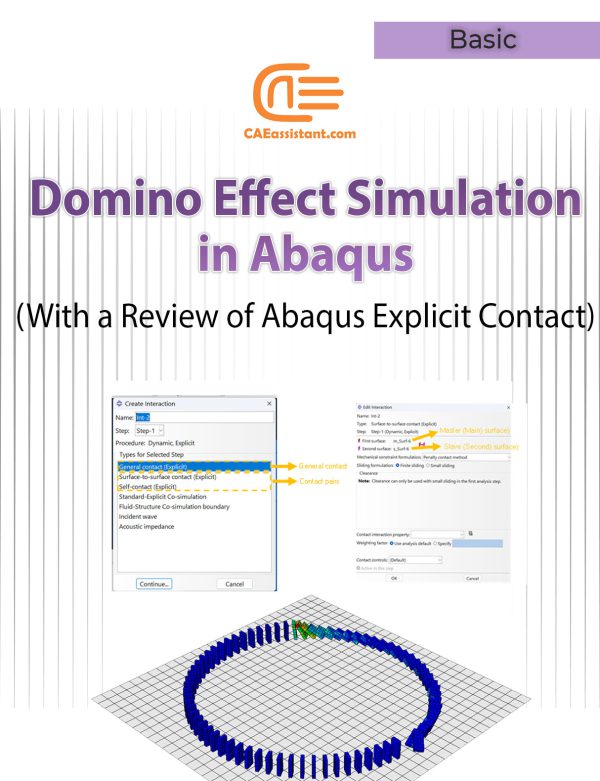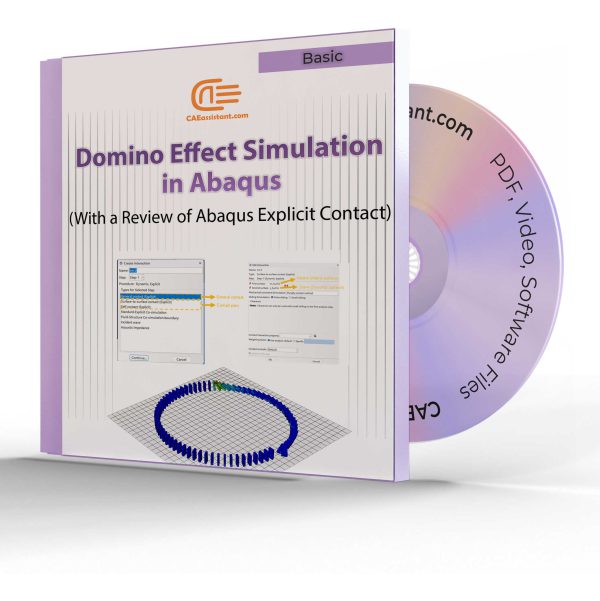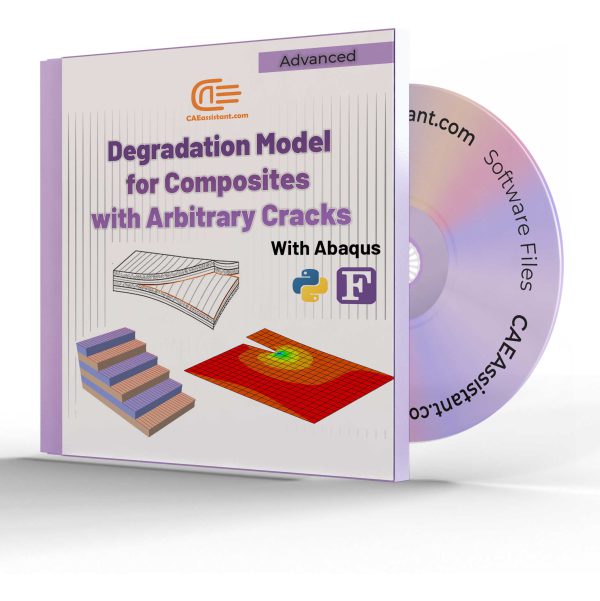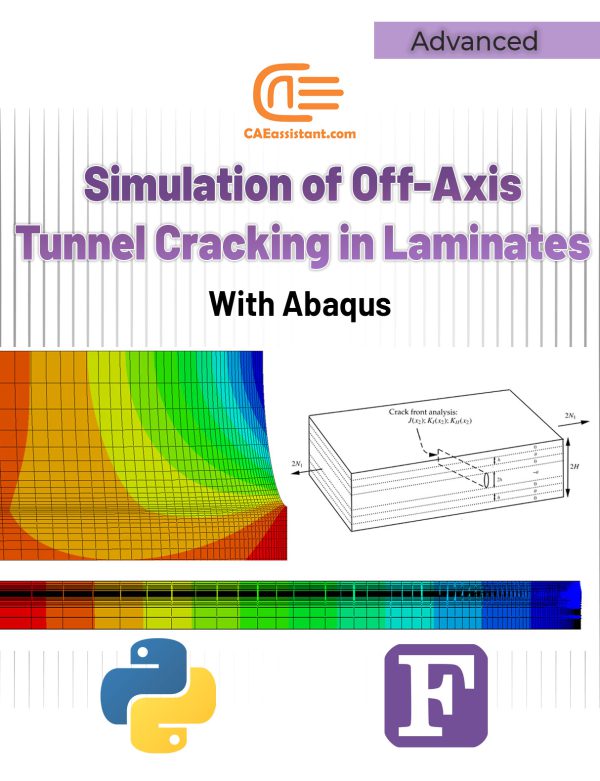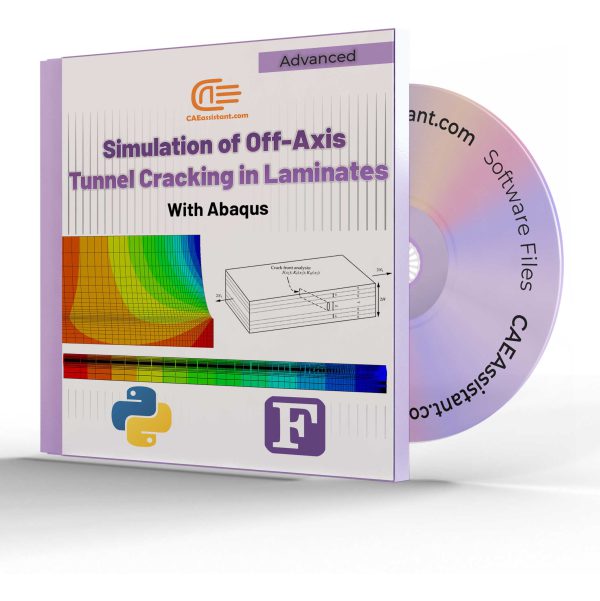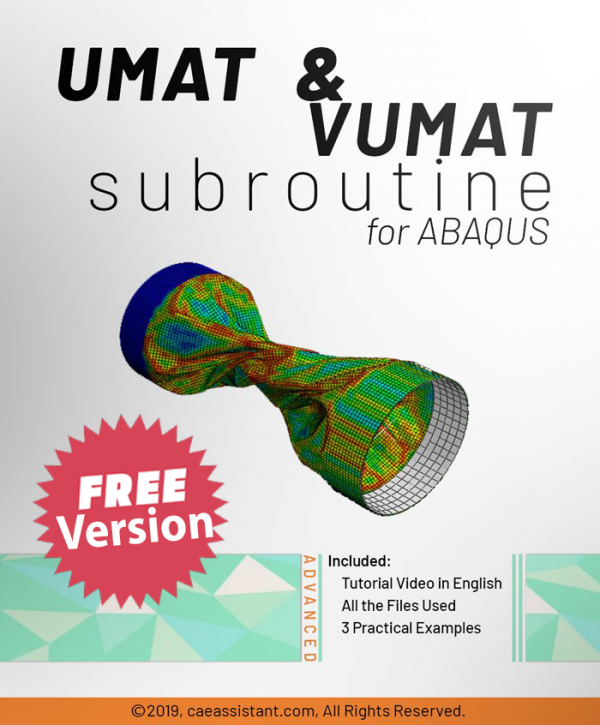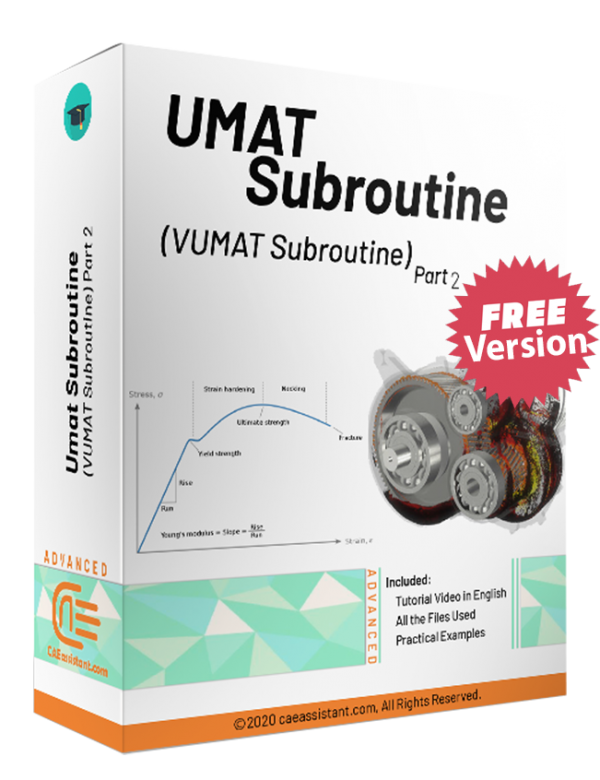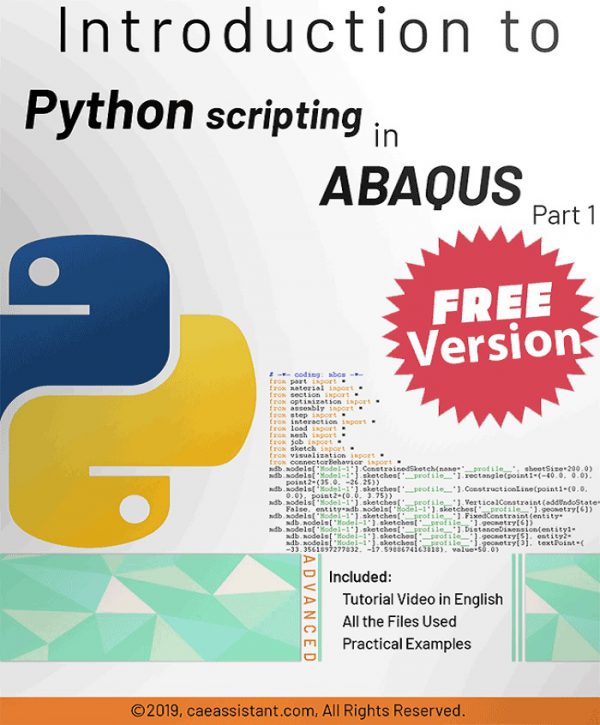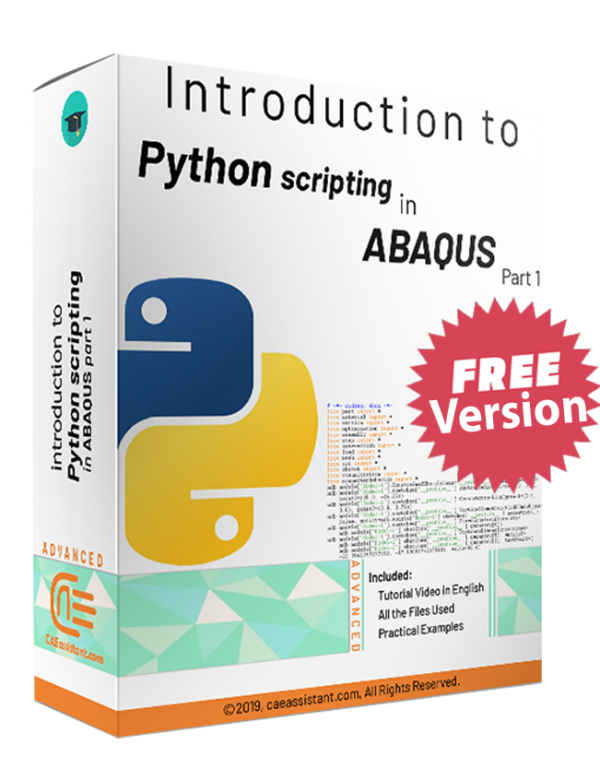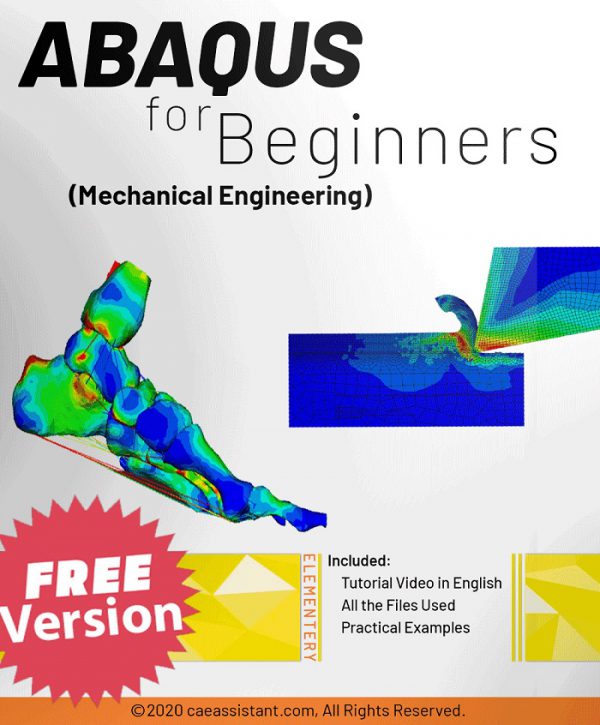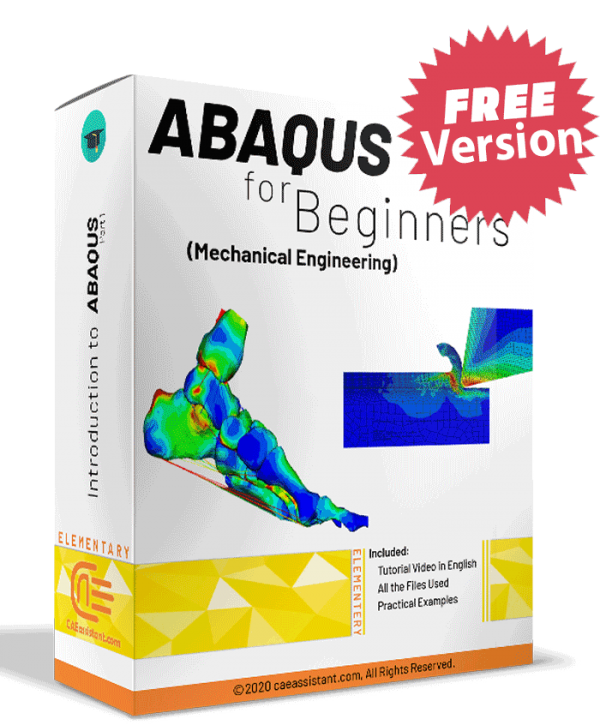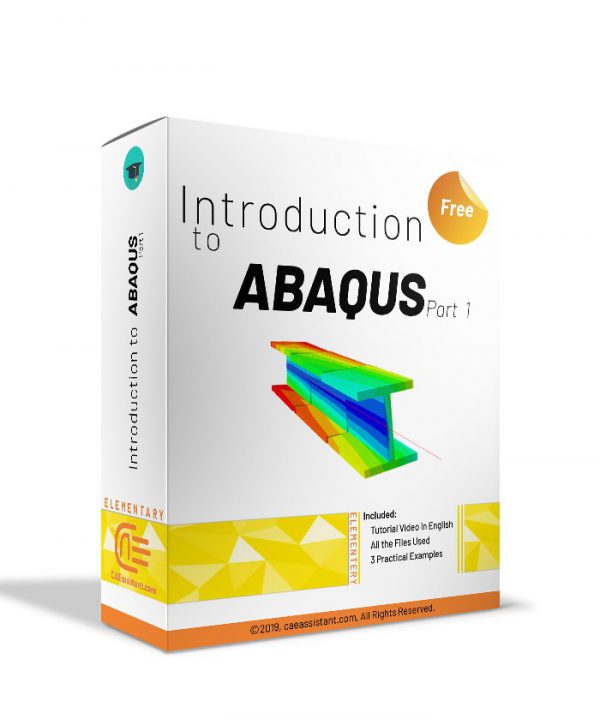Jump-start your Abaqus expertise with our library of free tutorial packages!
These comprehensive resources are designed specifically for beginners, guiding you step-by-step from the fundamentals of Abaqus to more advanced techniques. Explore a range of practical examples and build your confidence in using the Abaqus software!
Also, see all about us by visiting our home page: CAE Assistant
With these free packages you could learn the fundamentals of Abaqus and boost yourself a little into the advanced level. Don’t know where to get the Abaqus for free?! Do not worry! We tell you all about Abaqus Free Download and Abaqus tokens and versions in this article: “How to Download Abaqus? | Abaqus student & commercial edition“
Domino Effect Simulation in Abaqus | With a Review of Contact Definition Methods in Abaqus Explicit
This project focuses on the domino effect simulation with Abaqus CAE, a widely recognized finite element program. The domino effect refers to a chain reaction where one event triggers a series of similar events. It often leads to larger and unpredictable consequences. The project highlights the challenges of defining contact between components in Abaqus, a crucial aspect of domino effect simulation. The provided video explains the step-by-step modeling process. However, since one of the key challenges in this topic is defining contact, we have also attached a separate PDF. It covers defining contact in Abaqus Explicit. It includes its formulations and methods. The PDF will provide you with a better understanding of the modeling process. You can also apply it to model other problems.
An Efficient Stiffness Degradation Composites Model with Arbitrary Cracks | An Abaqus Simulation
Advanced Finite Element Analysis of Off-Axis Tunnel Cracking Laminates
UMAT Subroutine (VUMAT Subroutine) in ABAQUS-Free Version- UMAT Abaqus example
"UMAT Subroutine (VUMAT Subroutine) introduction" is used when the material model is not available in ABAQUS software. If you follow this tutorial package, including standard and explicit solver, you will have the ability to write, debug and verify your subroutine based on customized material to use this in complex structures. These lectures are the introduction to writing advanced UMAT and VUMAT subroutines in hyperelastic Martials, Composites, and Metal, and so on. Watch Demo
"Advanced UMAT Subroutine (VUMAT Subroutine)" training package helps Abaqus users to prepare complex UMAT and VUMAT subroutines. This training package is suitable for those who are familiar with subroutine or want to learn UMAT/VUMAT subroutine Professionally. Equations for computational plasticity based on kinematic stiffness are also discussed. In addition, metal damage has been implemented based on Johnson Cook's model. Watch Demo